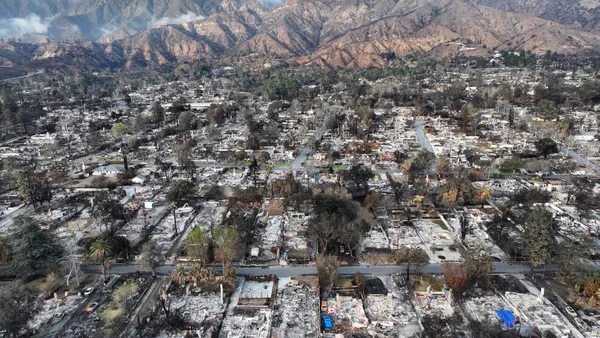Dive Brief:
- Kansas regulators have allowed four more intervenors into the Westar-Great Plains merger docket, bringing the total to at least 19 according to the Lawrence Journal-World.
- Additionally, Missouri has been trying to claim some jurisdiction over the case and the state's Office of Public Counsel, or staff at the Missouri Public Service Commission, are expected to file a complaint in the proceeding.
- The deal would give Great Plains, which owns Kansas City Power & Light, more than 1.5 million customers in Kansas and Missouri.
Dive Insight:
The road ahead for Great Plains Energy's bid to purchase Westar is getting more complicated, Lawrence Journal-World reports, with Kansas regulators allowing more intervenors and neighboring Missouri continuing to assert its jurisdiction as well.
According to the paper, the Kansas Corporation Commission has allowed four new intervenor requests in addition to the 15 it already approved. The intervenors include: Occidental Chemicals, Midwest Energy and two chapters of an electrical workers union. And last week, staff of the Missouri Public Service Commission issued a critical analysis of the deal and continued to push for some say over the merger.
Great Plains Energy announced in May it would acquire Westar Energy, the largest electricity provider in Kansas, for $12.2 billion, including $8.6 billion in equity value plus debt. Based in Topeka, Westar serves about 700,000 customers across eastern Kansas and owns more than 7 GW of generation. The deal would give KCPL parent Great Plains over 13 GW of total generation.
Staff at the Missouri Public Service Commission say they will need to approve the deal as well, citing an agreement made eight years ago during KCP&L's acquisition of Aquila Inc. Missouri PSC Staff filed an investigative report alleging the deal will violate a 2008 agreement that said KCP&L would not acquire another utility without regulatory approval from Missouri, the news outlet noted.
The companies hope to close the merger in the spring of 2017. The merger must also be approved by the Federal Energy Regulatory Commission and the Nuclear Regulatory Commission.












